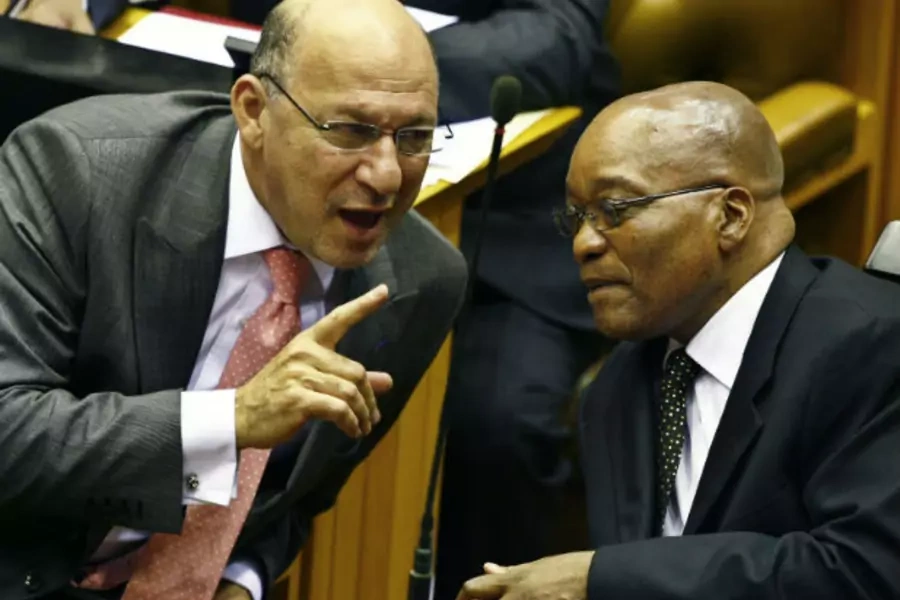South Africa’s Trevor Manuel Uses the “Apartheid Card” to Force the Issue of NDP Implementation

More on:
This is a guest post by John Causey, a private equity consultant based in Cape Town, South Africa. He specializes in sub-Saharan Africa transactions, with investors mainly from the EU and U.S.
The recent wave of optimism in South Africa has been challenged by a skirmish surrounding the implementation of the National Development Plan (NDP). It involved two African National Congress (ANC) heavy-weights: President Jacob Zuma and Planning Minister Trevor Manuel.
The NDP is an ambitious and comprehensive nation building plan for South Africa. It aims to address the country’s social and economic challenges including pervasive poverty and racial inequality. Trevor Manuel has led its development. The plan receives wide support across the political spectrum. The NDP is widely accepted by ruling ANC elites as the preferred way forward, and it receives support from the business and international investment communities.
The short-lived spat between Zuma and Manuel began when the latter stated that after nearly two decades, apartheid could no longer be credibly blamed for the failings of South Africa; pleas of ignorance and inexperience would soon fall on deaf ears of a patient public, growing increasingly weary of poor service delivery. He urged a “ruthless focus” on implementation of the plan.
President Zuma quickly countered, lamenting that apartheid is still a primary cause of the country’s problems, and that blaming the old regime should not stop.
Trevor Manuel is a long-term veteran of the liberation movement and a savvy political operative, yet even a man of his stature must be thoughtful and deliberate when downplaying the devastating role the legacy of apartheid continues to play in modern South Africa.
I believe Manuel may have purposefully played the “apartheid card” to create an environment for change necessary to begin implementing the National Development Plan. Here’s how I came to that understanding:
1) A very interesting KMPG collaborative analysis on the NDP suggests that to clear obstacles to implementation one should address “…resistant individuals and/or groups with influence and help… them to reorient themselves to the requirements of the new reality.”
2) On numerous occasions, Manuel has argued that a major challenge to successful NDP implementation is repairing the government machine, which he terms the “engine room.” This video shows the direct and forceful manner in which Manuel speaks on this issue. This sentiment is supported by Cyril Ramaphosa.
3) The timing is almost ideal. The stated objective for 2013 vis-à-vis the plan is to remove impediments to implementation thereby clearing the way for a five-year rollout, beginning next year.
The good news for the NDP is that there are leaders like Manuel and Ramaphosa willing to spend political capital to see it implemented. The bad is that there is a long way to go and many who are poised and ready to pounce on challenges to the status quo.
More on:
 Online Store
Online Store